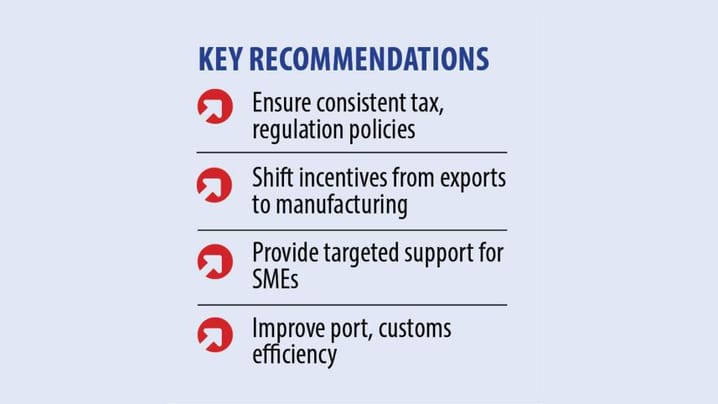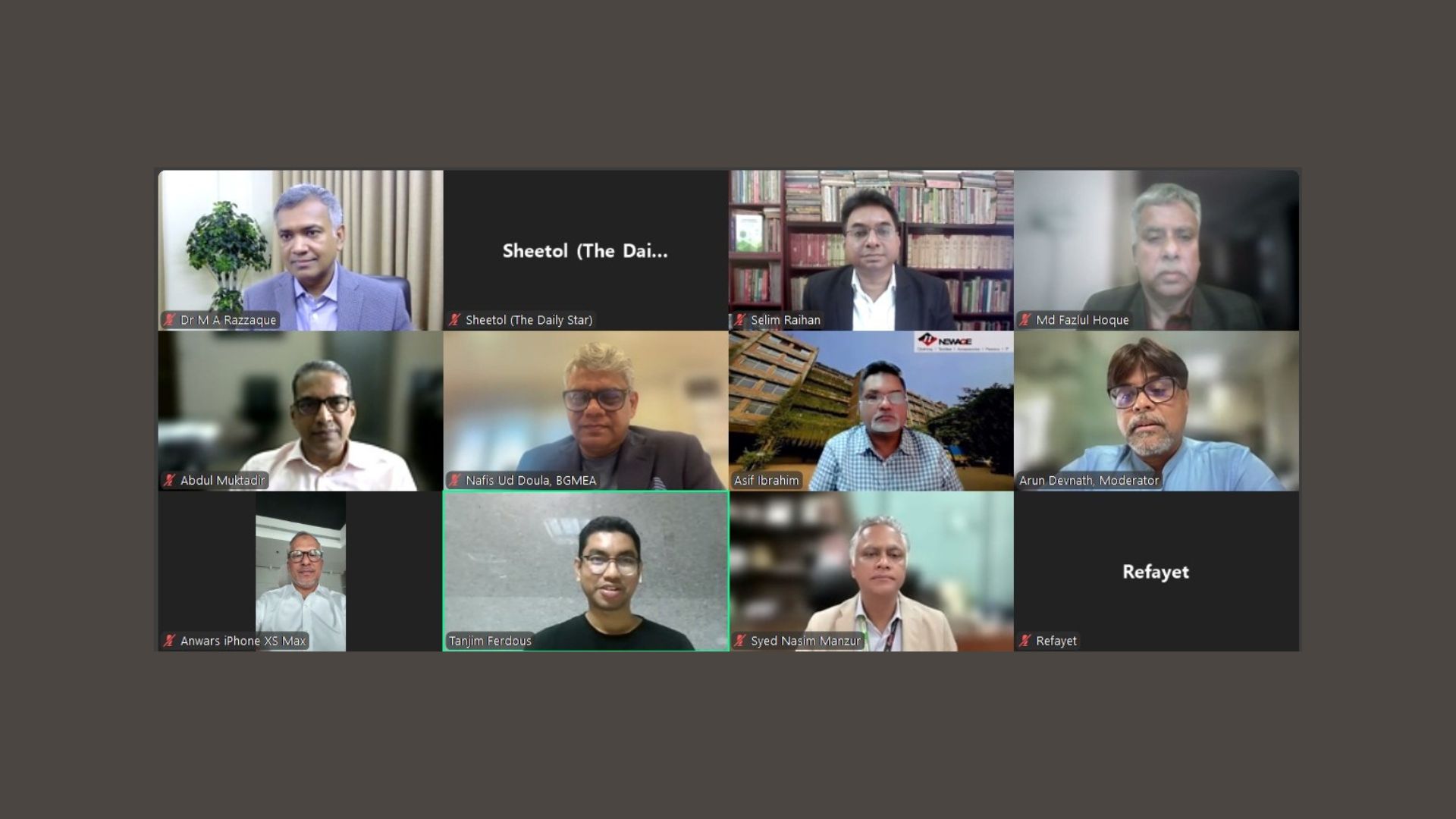Simpler rules key to smooth transition from LDC

Leading entrepreneurs yesterday urged the government to create an environment more conducive to doing business as Bangladesh prepares to graduate from the UN's least developed country (LDC) category next year.
At a roundtable titled "Policy and Regulatory Challenges in the Private Sector", they warned that bureaucratic inefficiencies, regulatory red tape, and inconsistent policymaking could undermine competitiveness after graduation. The event was the third in a series of discussions organised by The Daily Star to examine private sector challenges and chart a roadmap for the economy.
Speakers stressed the need for streamlined procedures, deregulation of excessive compliance requirements, and policy overhaul to align with international standards. Policy consistency, they said, is critical to fostering investor confidence, both local and foreign, and to attracting much-needed capital inflows.
Star Roundtable 1 - Businesses for deferment of LDC graduation by 6yrs
Star Roundtable-2 - Logistics not yet ready for post-LDC graduation needs
They emphasised that political stability, predictable energy supplies, and an improved law-and-order situation are prerequisites for sustained growth. Consultation with the private sector, they said, must be genuine, not tokenistic.
Participants also highlighted the vulnerabilities of small and medium enterprises (SMEs), which provide the bulk of employment and underpin larger corporations. Without targeted support, SMEs risk being disproportionately exposed to post-graduation pressures.
Zaved Akhtar, president of the Foreign Investors' Chamber of Commerce & Industry (FICCI), said Bangladesh must simplify business processes, improve NBR operations, and ensure a regulatory environment that supports both exports and domestic production. "If SMEs don't survive, corporates will not survive," he warned.
Ahsan Khan Chowdhury, chairman and CEO of PRAN-RFL Group, lamented the "difficult" business climate. Because of this, Bangladesh's annual export is one-tenth of Vietnam's target of $450 billion, he said.
"Every application hovers from table to table and gets stuck for small reasons," he said.
Till we make business simple, Bangladesh will not be a competitive place to manufacture or attract foreign investment, Chowdhury said.
He also said government people don't want to listen to the private sector. "When the private sector talks, they always believe that it is for a vested interest.
"We create more jobs than the government sector. So, Sir, start listening,"
Chowdhury blamed poor port, customs, and transport systems for the country's low competitiveness.
Syed S Kaiser Kabir, managing director of Renata PLC, called LDC graduation "a highly risky decision" given the Covid-19 fallout, last year's July uprising, economic mismanagement, high inflation, and currency depreciation. "Bangladesh is not yet ready. Preparations could be made later when the situation stabilises. Many countries have deferred the process; we could too," he said.
Showkat Aziz Russell, president of the Bangladesh Textile Mills Association, said he doesn't think there is a good business environment in place for surviving after the LDC graduation
He also cited discriminatory port charges. "Demurrage for cotton is 400 percent, whereas it is zero for yarn. Are we patronising imports?" he asked.
"If our policy is such that the government wants to help import, then there is no point establishing factories in the country that contribute to job creation," he added.
DataSoft Systems President M Manjur Mahmud urged the government to respect local firms, allocate them a fair share of IT contracts, and stop excessive interference.
He said the Bangladesh Investment Development Authority is trying to bring investors from "everywhere else". "What about me? I'm an investor," he said.
Mahmud criticised delays in land registration and excessive compliance. "It takes two years to register land in a company's name. Once you start your business, suddenly the environment department comes, suddenly NBR asks for five files. You get bombarded with systems and processes," he said.
Yasir Azman, CEO of Grameenphone, warned that taxes are higher for the telecom industry compared to other countries, but unpredictable tax policies undermine confidence. "We will bring investment but we need policy sustainability," he said. "If the government takes this opportunity to fix things, it will help businesses."
Khondaker Golam Moazzem, research director of the Centre for Policy Dialogue, noted that while the government has recently begun some fiscal adjustments, such as subsidy reforms and tariff adjustments, collective preparation from the private sector is lacking.
He advised shifting fiscal incentives from export stage to production phase, citing India's example of support for establishments, machinery, and energy instead of direct export incentives.
"Entrepreneurs should clearly communicate their needs, and the government must respond to ensure the competitiveness of the private sector after graduation," he said.
He also said a centralised digital platform should be created where all government agencies can access the required documents directly, without forcing businesses to submit them repeatedly.
Abrar Hossain Sayem, president of the Bangladesh Apparel Youth Leaders Alliance, said most new businesses fail within five years. The major obstacles they face include financing, contract enforcement, and complex taxation. He called for simplified regulations, digital one-stop services, and targeted investment in skills and high-potential sectors.
Riad Mahmud, managing director of Shoeniverse Footwear, warned that without timely policy support, many firms will collapse, leading to job losses and capital erosion.
He also flagged security concerns that restrict women's participation in sales and revenue collection. "The security issue must be addressed immediately if we want women to play a bigger role," he said.
 For all latest news, follow The Daily Star's Google News channel.
For all latest news, follow The Daily Star's Google News channel. 

Comments